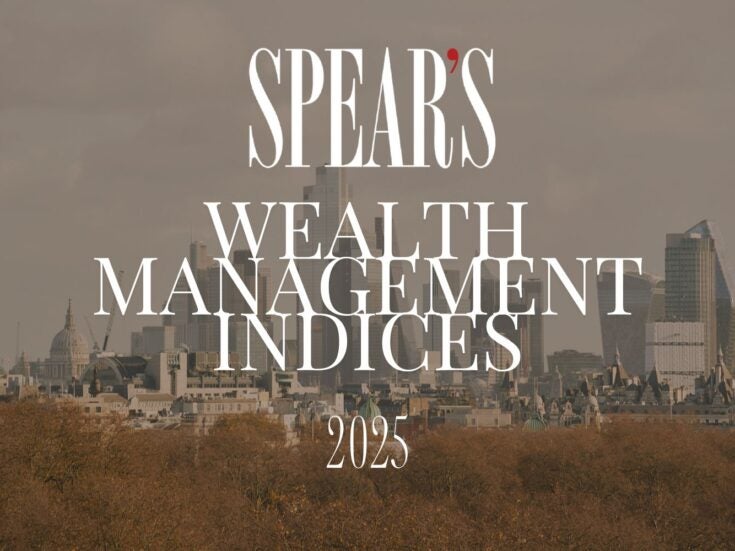
Claudia Perotti on how the rising cost and declining supply of oil will affect your investment portfolio as well as your day-to-day way of life
NOW IS A good time to rethink our relationship with oil. The industry that fuels our homes, our transport and our businesses is pushing out the boundaries of discovery, and as a result it is becoming more costly to explore and produce. Although there is no scientific consensus on when we will reach a ‘Peak Oil’ scenario, what is becoming clear is that the world’s easily accessible oil supplies will soon begin to shrink. The result will be higher oil prices, which could reshape our lifestyle choices and investment portfolios.
Demand for oil from OECD nations has grown at a stronger than expected pace this year, largely driven by China, whose demand has surpassed its own supply. Global oil demand has now pushed past 85 million barrels a day as the global economy recovers and demand for crude from developed nations picks up. While this rise in global demand is expected to coincide with a slowdown in supplies from non-Opec producers, Iraq’s return to the oil scene should help to plug the gap in the supply chain.
Although the rehabilitation of Iraq’s oil fields should help to soften the ascent of oil prices, it is unlikely to mitigate concerns about the Peak Oil scenario. Peak Oil is the point in time when the maximum rate of global petroleum extraction is reached, after which the rate of production enters terminal decline. Oil stops being slick and starts getting sticky. </p>
‘We are not running out of hydrocarbons,’ says Christine Tiscareno of S&P. ‘What is peaking is production and reserves of sweet oil [low sulphur, low viscosity oil], which is easy to process and therefore more lucrative.’ In addition, integrated oil companies (IOCs) have been finding it increasingly difficult to access hydrocarbon reserves. Countries with oil and gas reserves feel less dependent on the big oil companies to help them exploit their resources. As a result, they have reduced the amount of oil they are willing to share and made concessions less profitable. In turn this is steering oil companies into more dangerous and expensive oil frontiers.
‘It is this more restricted access to hydrocarbon resources — at a time of growing demand for hydrocarbons from expanding developing economies like Russia, China and India — that has significantly increased the price of crude oil, creating an impression of dwindling supply as it does so,’ says Tiscareno. Higher prices have encouraged IOCs to access commercially challenging hydrocarbon regions, which were previously economically inaccessible. This is one of the key reasons that BP found itself in the deep offshore Gulf of Mexico, drilling at water depths of up to 10,000ft. It is why shale gas is being developed in the USA. It explains the motivation behind Arctic offshore exploration. The list of unconventional, hard-to-reach hydrocarbon deposits goes on.
According to the Energy Information Administration, global energy demand will increase by about 48 per cent by 2035. Tiscareno agrees: ‘In our view, it is precisely this cycle of rising global energy demand amid falling supply of easy-to-access hydrocarbons that will secure the future of oil and gas companies. Their services are fundamental for the world’s economic development.’
Tiscareno believes the future of oil- and gas-producing companies for the next two decades is secure — and profitable. ‘We predict rising share prices for those that can map out a successful trajectory for themselves. In our view, shares in the oil and gas sector should remain an important part of an equity portfolio for the next ten years, at least, as their upward earnings trend should continue to provide reliably profitable returns for investors.’
Based on Tiscareno’s assumptions, portfolio managers would do well to consider how best to position their investment portfolios to benefit from higher oil prices and hedge against the rising cost of oil. Businesses, entrepreneurs or high-net-worth individuals, meanwhile, may also want to look at other, innovative ways of offsetting or reducing their energy costs.
The increasing ease of generating your own energy is cold comfort to readers who cannot turn their Eaton Square lateral conversion into a domestic power generator, and the impact of rising oil prices will have very direct effects on their lifestyles. One shift lately is HNWs moving from owning jets to buying into fractional-ownership jet schemes, or even renting planes on an ad hoc basis. Mostly this is to do with upkeep, but the rising cost of oil will if anything accelerate this trend.
There is an array of reasons why an HNW should care about oil — whether it’s peaking or troughing, gushing or stopped. From your portfolio to your Porsche, it’s as crucial as water.
This article, written 22 November 2010, is (c) Standard & Poor’s Financial Services LLC 2010. All rights reserved.







